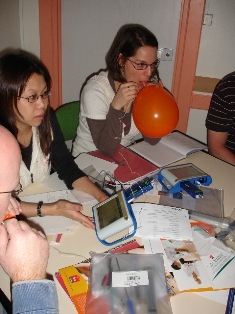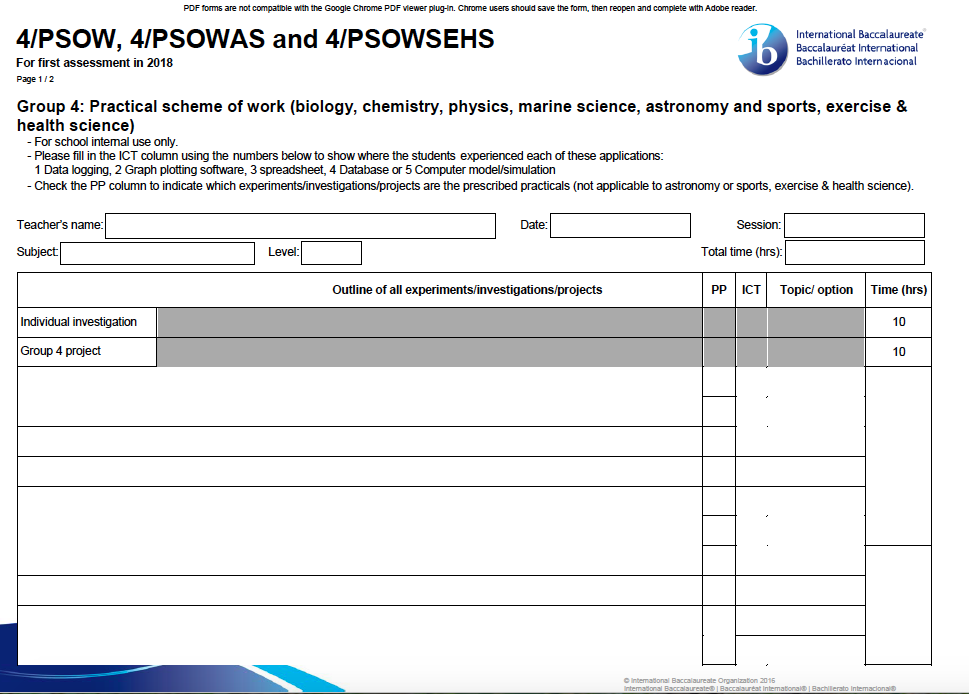ICT in practical work

 Introduction
Introduction
Aim 6 requires students to develop experimental and investigative scientific skills including the use of current technologies and Aim 7 in the Chemistry Guide is concerned with developing and applying 21st. century communication skills in the study of science.

The Guide also specifically states "The use of information communication technology
(ICT) is encouraged throughout all aspects of the course in relation to both the practical programme and day-to-day classroom activities. Teachers should make use
of the ICT pages of the teacher support materials". If you look in the TSM you will find information on how to use data loggers, simulations, spreadsheets and data bases.
In the old (last exams in 2015) Chemistry Guide it clearly stated that five different types of ICT must be used a least once during the practical programme. Teachers had to identify these five areas on the form 4/PSOW.
What is rather strange is that although the use of ICT is clearly encouraged, there is now nowhere in the Guide for first examinations in 2016 (or in the TSM) where it says that students must address these five different types of ICT at least once during the 40 hours (SL) or 60 hours (HL) spent covering the Practical scheme of work. However the form 4/PSOW for use in May 2016 and onwards (which can be downloaded from teh Programme Resource Centre on My IB) still requires these five different types of ICT to be identified. It is worth emphasising that ICT can, and probably should, be used appropriately in the Individual Scientific Investigation and in the Group 4 Project as well as in some of the Mandatory laboratory components and other practicals.

Form 4/PSOW © IBO
The five areas in which ICT should be used at least once are:
- Data logging in an experiment
- Software for graph plotting
- A spreadsheet for data processing
- A Database
- Computer modelling & simulations
No guidance about how each one can be applied or used is given in the Chemistry guide but there is some useful information in the TSM. I’ve provided information and ideas on individual pages for each area to illustrate their strengths (and weaknesses) and provided suggestions as to how they can be introduced and used. You do have huge flexibility. Some schools will rely heavily on ICT whereas others will adopt a more traditional approach and literally use each area once (or not much more than once) to fulfil the form 4/PSOW requirements. As a chemist I do find it a little strange that students are required to use ICT (which I approve of and have no problem with) but they are not required to use or apply basic chemistry manipulative skills such as refluxing, distilling, recrystallising, chromatography etc. etc. You can find out more about my views on this on my blog Practical work and assessment. This was written when the old programme was operating. Some of these issues have been addressed in the current (first examined in May 2016) programme but by no means all of them.

 IB Docs (2) Team
IB Docs (2) Team